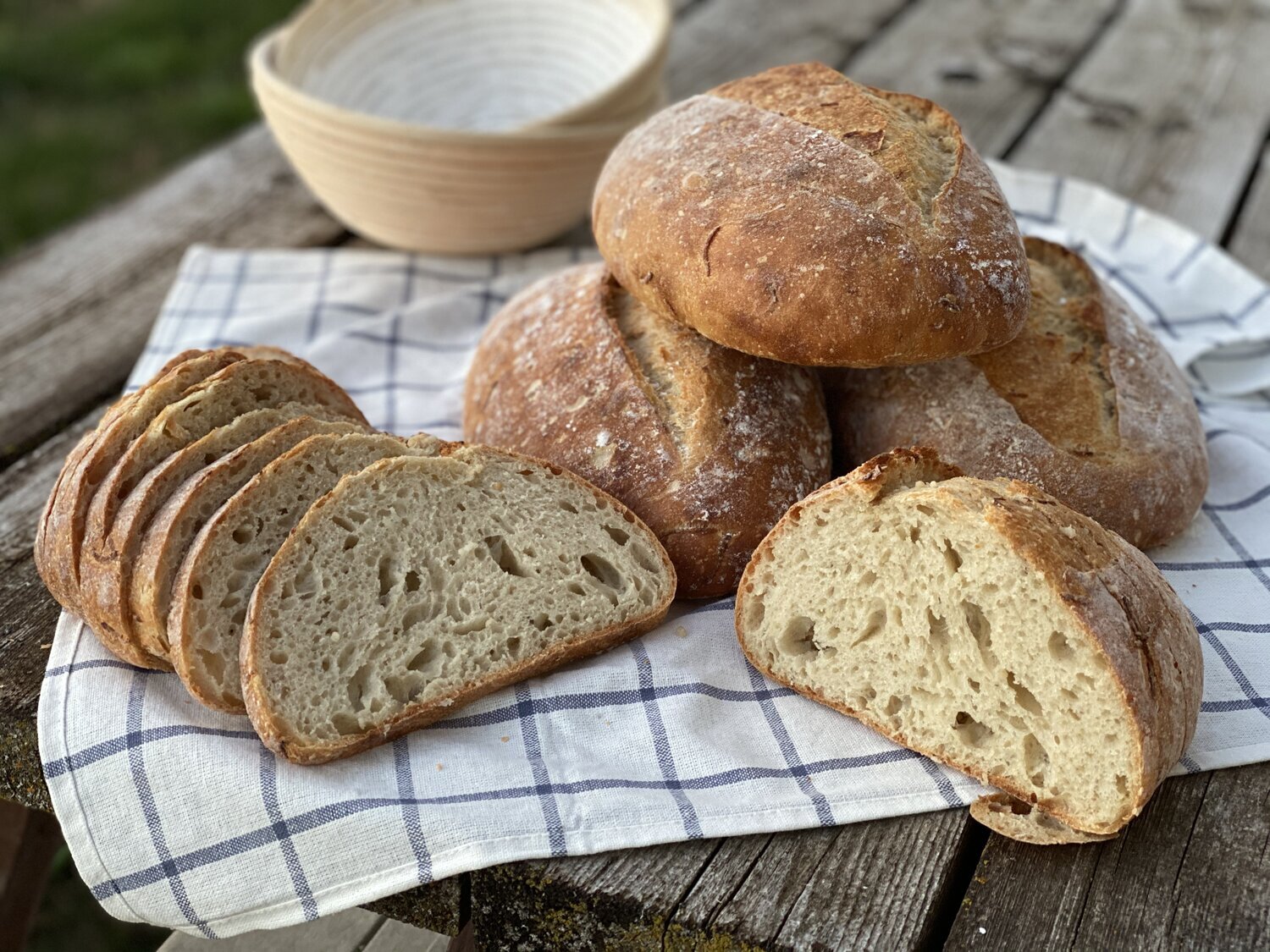If baking is any labour at all, its a labour of love…
What is Fermentation?
“Fermentation in bread is a biological process where the microorganisms in food convert sugars into cellular energy and a metabolic byproduct – lactic acid.”
Due to the loooong fermentation, sourdough bread is:
easier to digest – Since the Mother Culture used is rich in bacteria (the good kind, of course), when the sourdough is rising, the lactobacillus bacteria produce an enzyme called phytase, which conveniently ‘pre-digests’ the phytic acid partially neutralizing it, simply put: digestion begins before you even take a bite!
lower in sugar – During the breakdown, many of the sugars & starches are consumed by the “natural yeast” in the loaf. That means sourdough’s glycemic index is lower, keeping your blood sugar nice and steady (aka. Diabetic Friendly)
simple & delicious – made with only 3 simple ingredients (flour, water, & salt – the holy trinity) fresh sourdough can be enjoyed with any meal of the day… everyday 😉


